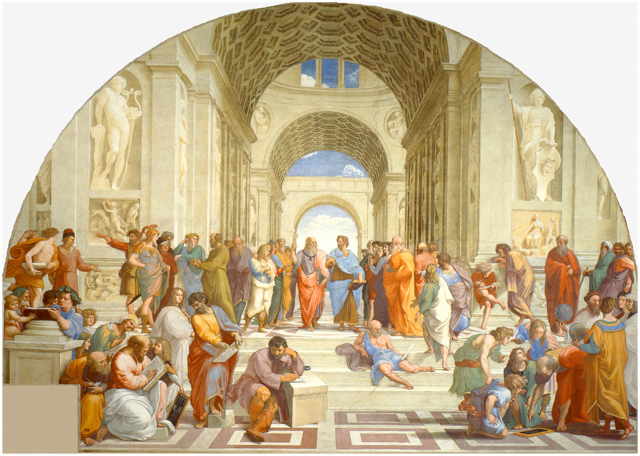
Source: Plato-raphael, Raffaello Sanzio, Wikimedia

Source: Plato-raphael, Raffaello Sanzio, Wikimedia
The imaginary story in the previous section provides a glimpse into the kind of just society that Plato envisioned. Plato was a famous philosopher who lived in ancient Greece between 428-348 BC. He wrote several books about justice, knowledge, and the ideal form of government. The most well-known of his writings is "The Republic." Challenge yourself and read an excerpt of The Republic at this link to get an idea of Plato's writings. Plato - The Republic
According to "The Republic," Plato argues that the best form of government is one which educates and elevates the most capable and brightest of its citizens to positions of power. This is called an aristocracy. Leaders must be just and virtuous. Plato calls these leaders the "philosopher-rulers." The "philosopher-rulers" are motivated by the common good and can distinguish between true and false principles. They must be selected and educated so that they can lead society to a proper end.
For this reason, Plato does not believe government should be open to the masses. He criticizes democracy because it allows all kinds of power-seeking individuals, who pursue personal gain rather than public good, to reach leadership roles. In a democracy, sometimes the most popular or persuasive individuals reach positions of influence. This can lead to corruption and ultimately to the destruction of the state.

Source: La scuola di Atene, Raffello Sanzio
Plato's Republic is perhaps the most well known part of a great philosophic tradition in Ancient Greece. Thinkers such as Plato, Aristotle, and Socrates remain influential today. The above masterpiece by the Renaissance artist Raphael shows many of the Greek philosophers engaged in conversation in Athens.